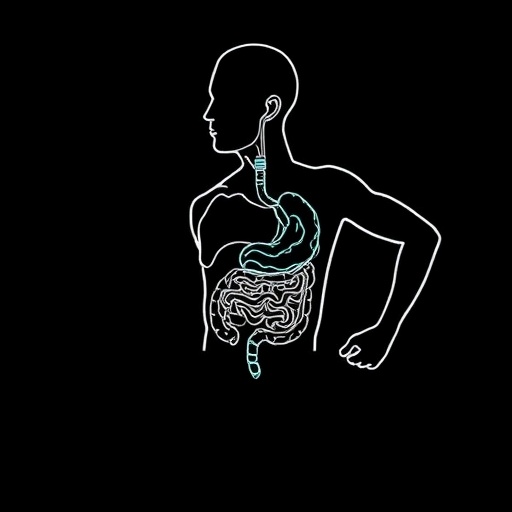Recent research has unveiled fascinating insights into the interplay between exercise intensity, gut health, and the immune system, particularly in the context of gut microbiota dysbiosis. This groundbreaking study, conducted by a team led by Hoseini et al., delves into how varying levels of physical exertion can influence gut epithelial cells and modulate immune responses, making significant strides in our understanding of overall health.
Gut microbiota, often called the “forgotten organ,” consists of trillions of microorganisms residing in our intestines. These microbes play a pivotal role in a myriad of bodily functions, including digestion, metabolism, and even immune system regulation. However, dysbiosis, an imbalance in gut microbiota, has been associated with numerous health disorders, ranging from obesity and diabetes to inflammatory bowel diseases. Understanding how lifestyle factors, particularly exercise, can restore balance is crucial for promoting better health outcomes.
The research conducted by Hoseini and colleagues focuses on the relationship between different intensities of exercise and their effects on gut health. It has long been established that regular physical activity is beneficial for health, yet the specifics of how varying exercise intensities impact microbiota composition remain less well understood. This study seeks to illuminate these nuances, providing a clearer picture of the mechanisms at play.
At its core, the study examines the effects of low, moderate, and high-intensity exercises on gut epithelial cells. The gut epithelium serves as the first line of defense against pathogens, and its health is critical for maintaining overall immune function. The researchers hypothesized that different exercise intensities would lead to distinct changes in gut epithelial cell function and composition, thereby influencing immune responses and the microbial community structure.
Through a series of controlled experiments, the researchers collected data from a diverse group of participants subjected to various exercise regimens. Intriguingly, their findings revealed that moderate-intensity exercise produced the most beneficial effects on gut health. This intensity was shown to enhance gut barrier function, reduce inflammatory markers, and promote a healthier microbiota composition, characterized by an increase in beneficial bacteria.
In contrast, high-intensity exercise, while beneficial in many respects, appeared to have a more complicated relationship with gut health. The researchers noted that, while it could lead to improvements in certain areas, it also induced a transient state of gut permeability, sometimes referred to as “leaky gut.” This phenomenon could potentially exacerbate dysbiosis if not managed correctly, suggesting that athletes and highly active individuals should pay close attention to their recovery strategies and overall gut health.
As the study progressed, the research team also began examining the underlying mechanisms that could explain the observed changes in the gut. It is believed that exercise exerts its effects through several pathways, including the modulation of gut hormones, the enhancement of blood flow to the intestines, and the direct action of muscle-produced metabolites. These factors collectively contribute to improved gut epithelial cell function and a more balanced microbiome.
Another compelling aspect of this research is its potential implications for individuals suffering from gut-related health issues. By promoting a structured exercise program tailored to the individual’s capacity and the intensity levels that best favor their gut health, healthcare providers could offer a non-pharmacological approach to improving gut dysbiosis and its associated symptoms. This could be particularly beneficial for those who are managing chronic diseases linked to gut health.
Moreover, the study highlights the importance of personalized exercise regimes. It underscores that what works for one individual may not yield the same results for another. Factors such as age, gender, diet, and pre-existing health conditions would all play critical roles in determining the appropriate exercise intensity. Consequently, further research is necessary to develop tailored exercise programs that can maximize gut health benefits across diverse populations.
The researchers anticipate that their findings could lead to innovative interventions aimed at enhancing gut health through exercise. By understanding the precise relationship between exercise intensity and gut function, it may be possible to develop targeted strategies that not only halt the progression of gut dysbiosis but also pave the way for therapeutic approaches that leverage physical activity as a primary treatment modality.
As these insights continue to emerge, they could significantly reshape how we view exercise as a fundamental pillar of health. Moving beyond traditional metrics of fitness such as cardiovascular endurance or muscle strength, we are beginning to understand the intricate ways in which exercise can alter our microbiome and, in turn, modulate our immune system. This progression signifies a remarkable evolution in how we perceive the holistic benefits of physical activity.
The implications of this study extend beyond individual health, potentially influencing public health policies and community wellness programs aimed at addressing the growing prevalence of gut-related health issues. By fostering environments that encourage regular physical activity at appropriate intensities, communities could play a crucial role in promoting better health outcomes for their residents.
In conclusion, the research conducted by Hoseini et al. provides invaluable insights into the dynamic interplay between exercise, gut health, and immune function. As we further explore the ramifications of these findings, it becomes increasingly clear that exercise is not just a tool for physical fitness but a powerful ally in our pursuit of holistic well-being. The journey towards optimizing gut health through exercise is only just beginning, and its future potentials promise to be groundbreaking.
Subject of Research: The effects of exercise intensity on gut epithelial cells and immune function in the context of gut microbiota dysbiosis.
Article Title: Exercise intensity-mediated regulation of gut epithelial cells and immune function in gut microbiota dysbiosis.
Article References:
Hoseini, R., Rahim, H.A., Saifalddin, D.L. et al. Exercise intensity-mediated regulation of gut epithelial cells and immune function in gut microbiota dysbiosis.
J Transl Med (2025). https://doi.org/10.1186/s12967-025-07492-1
Image Credits: AI Generated
DOI: 10.1186/s12967-025-07492-1
Keywords: Exercise intensity, gut health, microbiota dysbiosis, immune function, gut epithelial cells.




